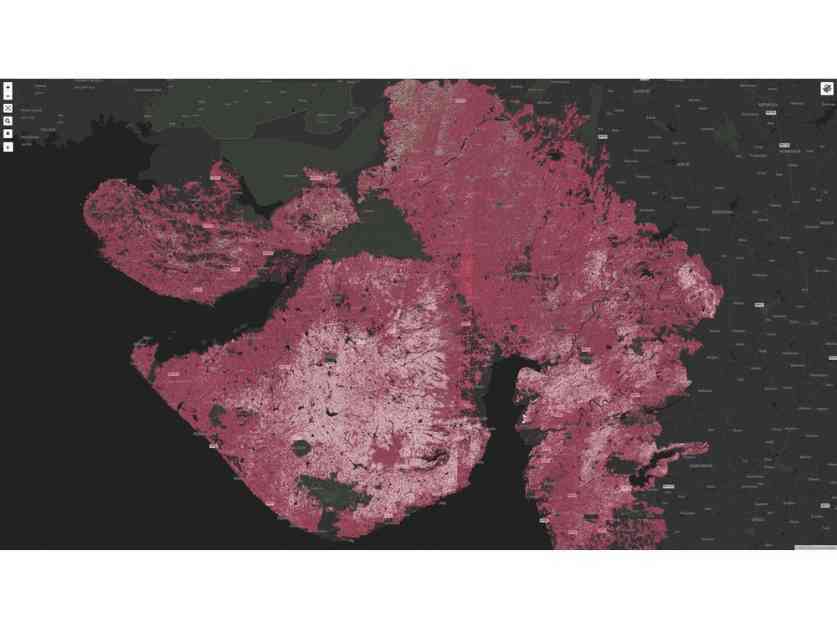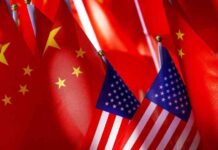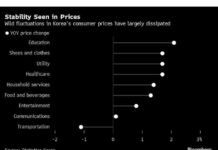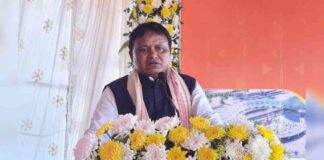Global Organic Textile Standard (GOTS) and Marple have collaborated on a groundbreaking AI Satellite Project that is revolutionizing the detection of organic cotton. This innovative project, known as the Satellite Cotton Monitoring Project, has demonstrated an impressive 97% accuracy rate in detecting cotton fields and over 80% accuracy in determining their organic status. By addressing critical challenges in the industry, this project aims to increase the availability of organic cotton and ensure the integrity of the fiber, building upon GOTS’s existing robust measures.
The technology behind this project is the Cotton Cultivation Remote Assessment (CoCuRA) software developed by Marple. Through this software, field teams were able to visit over 6,000 fields in India, collecting data on crops, soil types, and cultivation status. This data was then used to train the CoCuRA algorithm specifically for cotton fields in India. Once the algorithm was trained, it was applied to the entire agricultural area of India, covering a vast 2.7 million square kilometers. The results were impressive, with CoCuRA detecting all organic and conventional cotton fields with remarkable accuracy in a matter of seconds.
One of the key advantages of this technology is its ability to pinpoint cotton fields where farmers may be using near-organic or uncertified organic methods. This can facilitate the certification process for these farmers, ultimately leading to an increase in certified organic cotton availability. Jeffrey Thimm, an organic production specialist at Global Standard, highlighted the importance of identifying farmers who use sustainable methods but lack certification. By integrating these farms into conversion projects, the supply of organic cotton can be boosted, promoting sustainable farming practices and enabling farmers to access premiums on their supplies.
In addition to enhancing organic cotton availability, the CoCuRA software also plays a crucial role in securing organic fiber integrity. By integrating AI technology with satellite data, the software can verify cultivation practices meticulously. The data collected also contributes to Global Standard’s Global Fibre Registry, which consolidates comprehensive data on raw material production before entering the GOTS value chain. This not only adds to fraud detection and prevention but also ensures the integrity of organic farmers.
Global Standard is known for its comprehensive approach to sustainability, setting strict environmental and social criteria for the entire textile value chain. From promoting human rights to banning harmful chemicals in certified textiles, GOTS sets a benchmark for integrity and sustainability in the industry. Claudia Kersten, the managing director of Global Standard, emphasized the project’s significance in meeting the growing demand for genuine organic cotton. By combining satellite technology with AI, this project is a game-changer that benefits farmers, the industry, and consumers alike.
Looking ahead, the project aims to expand globally following its successful pilot in India. Daniel Lanz, the managing partner at Marple, highlighted the unique challenges faced in India for satellite-based detection of agricultural fields. Despite these challenges, CoCuRA has achieved astonishing accuracy in detecting cotton fields and assessing their cultivation methods. The potential impact of this solution lies in its scalability, with plans to deliver a solution that could have a global impact for the benefit of all.
Global Standard is eager to see this technology extend to other regions and additional fibers, potentially revolutionizing how crops are monitored on a global scale. The collaboration between GOTS and Marple represents a significant step forward in the sustainable agriculture space, showcasing the power of technology in driving positive change in the industry.






















